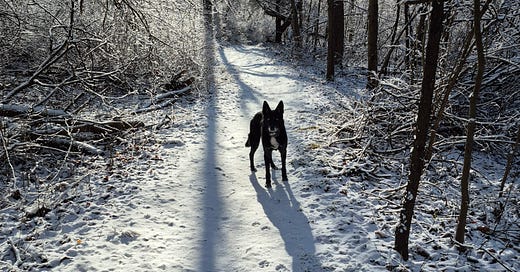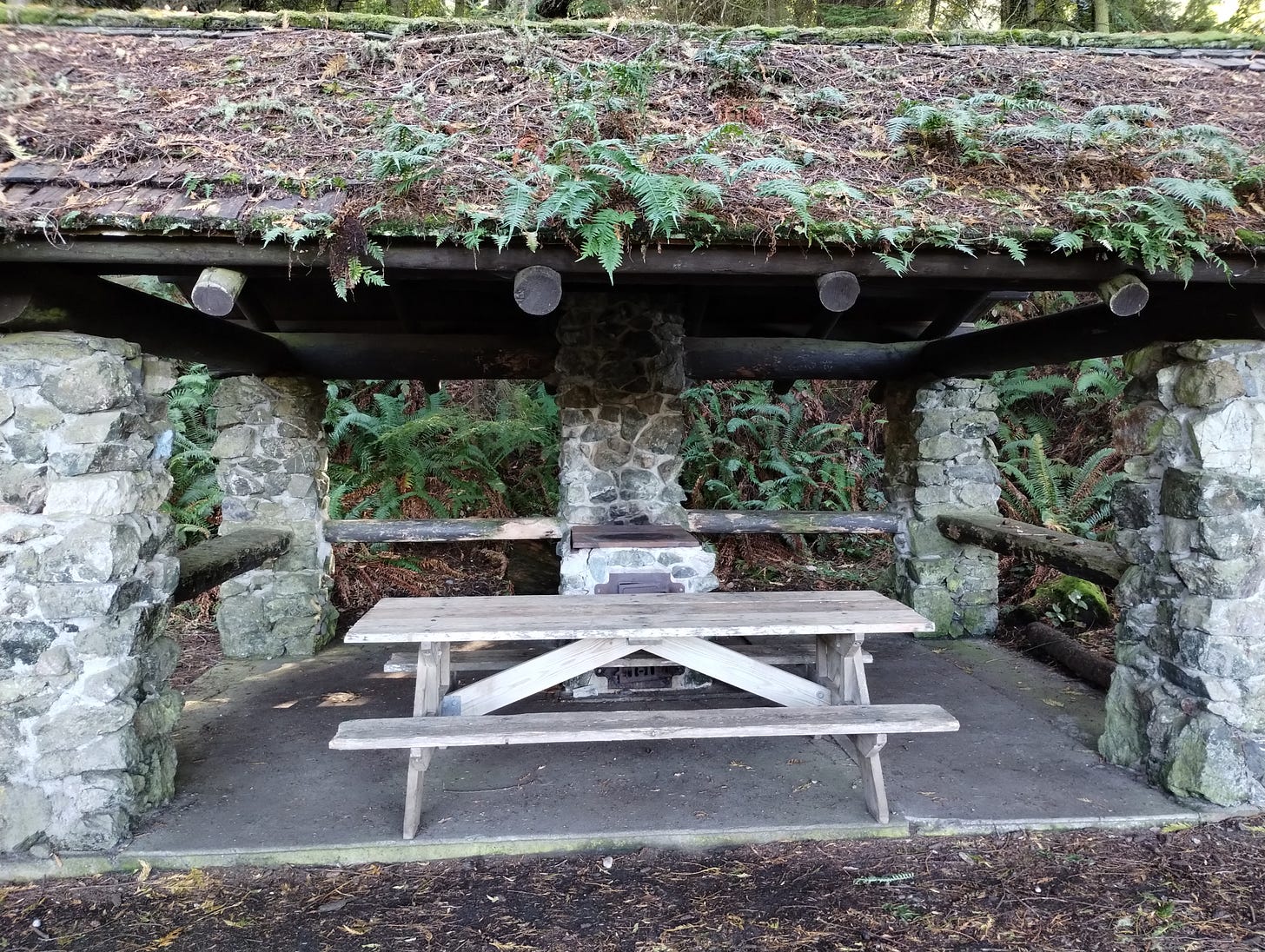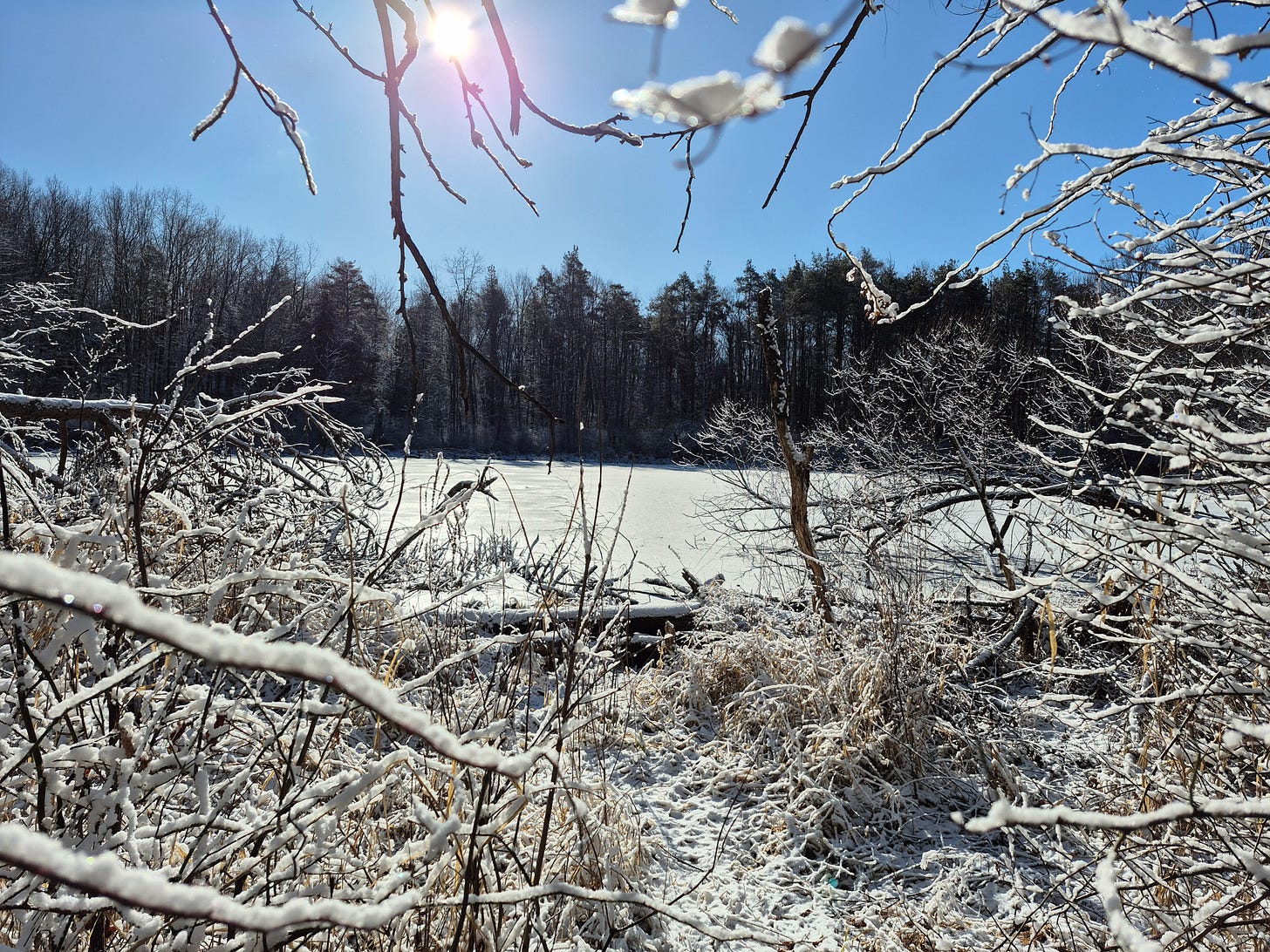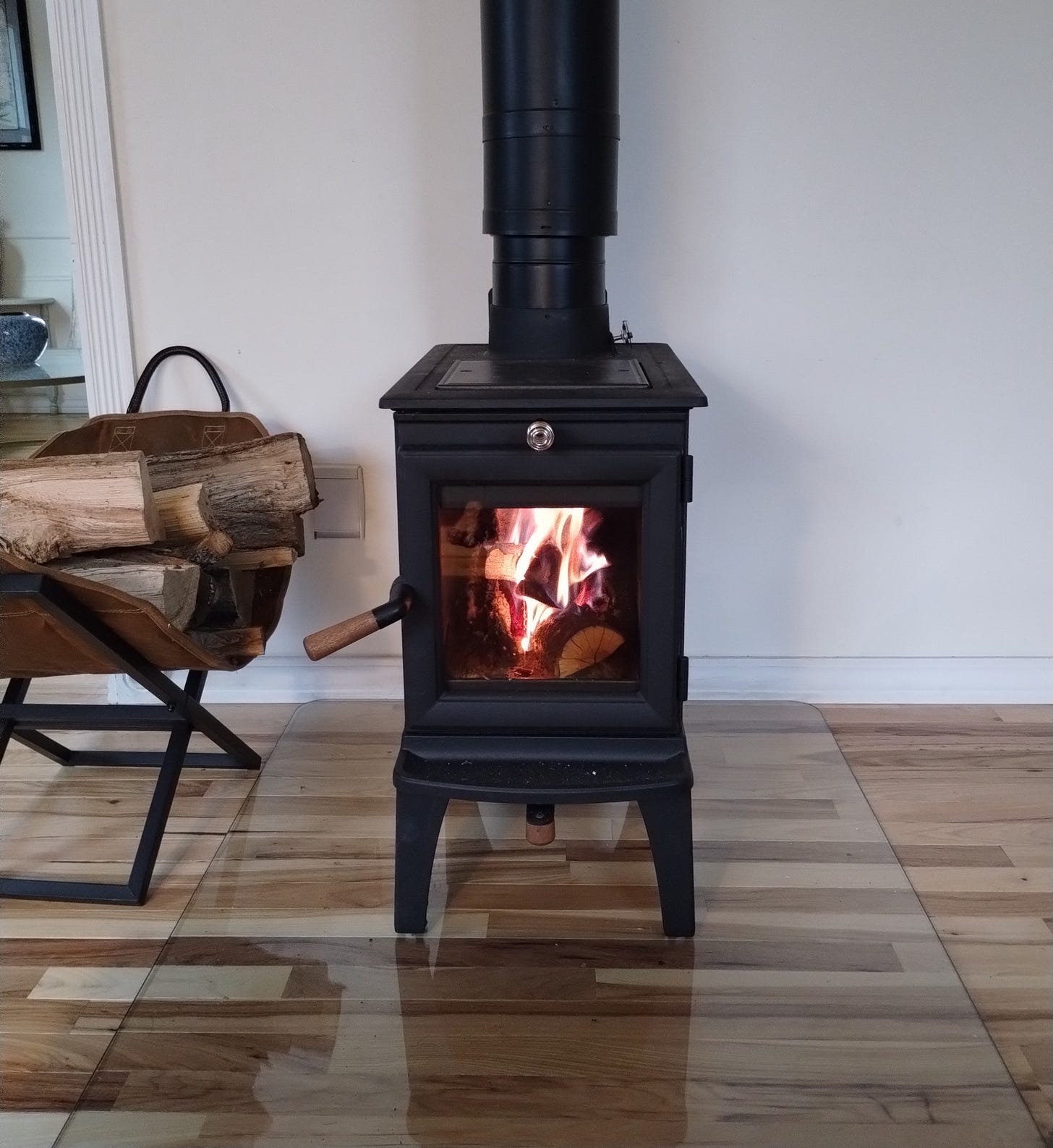In the first part of "Restoring Raw Experience” I argued that a rich personal experience is the soil in which learning takes root, and that the quality of one’s learning is unavoidably linked to the nature of one’s experience. The commonplace experience of a child growing up in an industrialized environment today will generally provide poorer soil than previous generations enjoyed because of the levels of abstraction from reality that industrial mass culture encourages. Much in education already consists chiefly of abstractions. But when a person’s experiential soil is shallow and insubstantial, educational abstractions cease to illuminate and organize one’s experience, and instead go into competition with them. We see this at a level of mass pathology in our day where fashionable academic theories are enacted in real life with disastrous consequences.
And let us be done with chronological fallacies and the boring criticisms they generate. Why be afraid to see and to say what is excellent in and for human beings in ages long past as well as today? Historical romanticism or nostalgia is like its twin progressivism. These chronological fallacies hold that we are either getting better or getting worse. And all the while we’re discussing which of the two it is, we don’t mention particular ways in which we might be getting better or worse. Suffering is a hard thing to measure and it seems to me to be a constant of human experience whether it manifests as leprosy and famine, or as chemo therapy and loneliness.
So, turning our backs on the array of chronological fallacies, we can ask what experiences dispose a human soul to be fertile soil for the seeds of learning? Education is in service of understanding the truth and becoming more fully who you are, which is to say, becoming good. These purposes twine together in the growing human since a deeper understanding of the difference between true and false, real and unreal, contributes to the right ordering of the person toward the good (which is always the most fully real). This is not to say that a deeper academic understanding necessarily contributes to one being good. That depends. And anyway, the unschooled are often quicker and deeper in their apprehension of the distinction between real and unreal. But how do we develop this apprehension of the real and our ability to make distinctions like true or false?
Education is the answer, of course. But in education, “book learning” is secondary to experience. No amount of Aristotle can help the poor soul who lacks experiences to which Aristotle’s observations attach and then illuminate.
The Thing Itself — A Table
This might be a fool’s errand, but here’s an absurd effort to illustrate key parts of human experience and how they can be pursued well or poorly. I’ve tried to state an experience in a general form as “the thing itself,” then to name a poor, abstract, derivative version of it, then a rich robust version, before finally listing a few elements you might find in a curriculum that relate to the particular “thing itself.” You’ll notice that the fake versions are not really fake, just more abstract and derivative—more secondary to the primacy of experienced reality. It looks like this:
The Thing Itself
Fake
Real
Educational Correlatives
The Thing Itself: Cold
Fake: judging cold by thermometer or instrument; tools like refrigerators or freezers; etc.
Real: playing in the snow; walking on ice; breaking ice on livestock tanks; etc.
Educational Correlatives: Ernest Shackleton’s story; scientific instruments and chemical properties; food preparation and preservation; Robert Frost’s “Fire and Ice;” etc.
The Thing Itself: Death
Fake: movies; funeral homes; statistics; news; etc.
Real: butchering; hunting; wakes; combat + EMT; burials; etc.
Educational Correlatives: autopsy; theology; demography; poetry; etc.
The Thing Itself: Speed
Fake: passenger on a plane; video games; simulators; etc.
Real: sprinting; drag racing; operating unenclosed vehicles; combatives; etc.
Educational Correlatives: study of physics; mathematics; logistics; etc.
The Thing Itself: Conflict
Fake: helicopter parenting; movies; constant supervision; news; etc.
Real: combatives; sports; unsupervised play; etc.
Educational Correlatives: history; psychology; strategy; literature; etc.
Strategies for Home and School
Given this kind of framework in which to evaluate the strength or value of experience in relation to the objects of our study, here are a few ideas for the home and school for restoring raw experience.
Home:
Recreation: Minimize screen time. Screens masquerade as experience.
Replace video games and social media with sports and live interactions with friends and community.
Have a fire in the yard or patio in the evening and watch the flames as the stars come out.
Walk. For any reason: to go shopping, to go to work; to go to church, to relax. Just walk.
Play music with friends and family. Learn an instrument or simply sing. Folk music is simple, should be down to earth, relevant to normal people’s lives, and lends itself to playing in a group.
Go on adventures. We work hard to insulate ourselves against the unexpected—do something to invite it. Go camping, climbing, road-tripping, or just take a walk.
Do real food.
Cook meals at home and have the kids help with meal prep and cleanup.
Make from primary ingredients (make butter from milk, cider from apples, roast your own coffee, etc).
If you have the ability to, raise some of your own food.
If you can’t, try patronizing a “you pick” farm or going on foraging hikes.
Understanding the difficulty of cultivating food and also the incredible abundance of the earth are at the heart of living decently.
Be where you are.
Collaborate with nature regarding the temperature of your living space.
When it’s nice out, keep the windows open.
When it’s hot, time opening windows and closing shutters to keep cool.
When it’s cold, work with southern exposure to maximize the heating potential of the sun.
Heat with wood.
Engaging in just a few of these will cultivate an awareness of the realities of seasons, of temperature, of moisture . . . of place. They give us back the gift of the world from which so many of us are so abstracted.
Do what you do.
Build things you need. Use dimensional lumber and fasteners, or sticks and paracord, or rocks and dirt.
Exercise in nature rather than a climate controlled machine for exercising.
Work on your own vehicle to the degree you are able. Try to expand that degree.
Embroider; knit; sew; etc.
In general outsource to industry only what you cannot reasonably do yourself.
School
Eliminate Screens
They are tools. We should form the mind before shaping it around a particular tool. Give the kids a chance.
Curriculum
It’s supposed to serve the growth of the student, not the other way around.
Conduct an experience audit to figure out the students’ “soil quality” so you know what and how to plant.
The curriculum is what you think they should know. The art and obligation of the teacher is to figure out how to help them learn it given the conditions.
Integration
It can be helpful to break subjects down and treat them as silos, but make sure you put them back together.
Here’s an essay to serve as a starting point for educational integration:
More Garden. Less Lab
·Back in the stone ages when I was an infantryman in the U.S. Marine Corps, I attended a specialized course in which I learned to climb mountains and buildings. Think rock climbing, but with guns and the wrong footwear.
In short, ask students to be fully human rather than simply doers of algebra, economics, or poetry.
Peers
Schools collect peers for extended periods of time. Work with that dynamic rather than against it.
Host a spectrum of activities at school which deepen students’ experiential repertoire and friendships.
Play sports, see plays, perform plays, camp, build greenhouses, go on adventures.
Place
Sometimes classrooms are a good environment for learning, but surely not the only one.
Texts and ideas play well in classrooms, but also around dining room tables, on trails, around campfires, and on fishing boats.
Chemistry can be contained to a lab, but the thing itself is unavoidable outside of labs.
Anyone with a little imagination should be able to connect the things we do in school with the actual realities and qualities for which we do them. That’s the heart of integration.










Excellent, Patrick. Really superb. I wonder how much of your advice here might also be shown to be an effective antidote for the depression crisis? Quite a lot, I suspect.
When I was young, just out of college, I lived for several years on a sailboat which I sailed extensively around the Caribbean, the northeast, and offshore. That's as real as it gets: cold, sickness, storms, survival. But also: stars, dolphins, sunsets, the tides. This was just before GPS was widely available. I learned to navigate with paper charts, taking visual fixes, manually calculating set and drift, and even using a radio direction finder to pick up signals offshore. I've climbed to the top of a 60 foot mast in a bosun's chair to fix a jammed mainsail, and bathed in the Atlantic hundreds of miles offshore where shafts of sunlight disappear entirely into the dark blue without ever reaching the ocean floor. In total, I spent about 8 years on my boat--all of it while also serving in the military--and it was the best "education" I've ever had.
Once again, I am SO onboard with your understanding of real education. In preschool (in MY understanding), having children use any kind of device with a screen is tantamount to causing brain damage. It literally limits the growth of their brains!!!